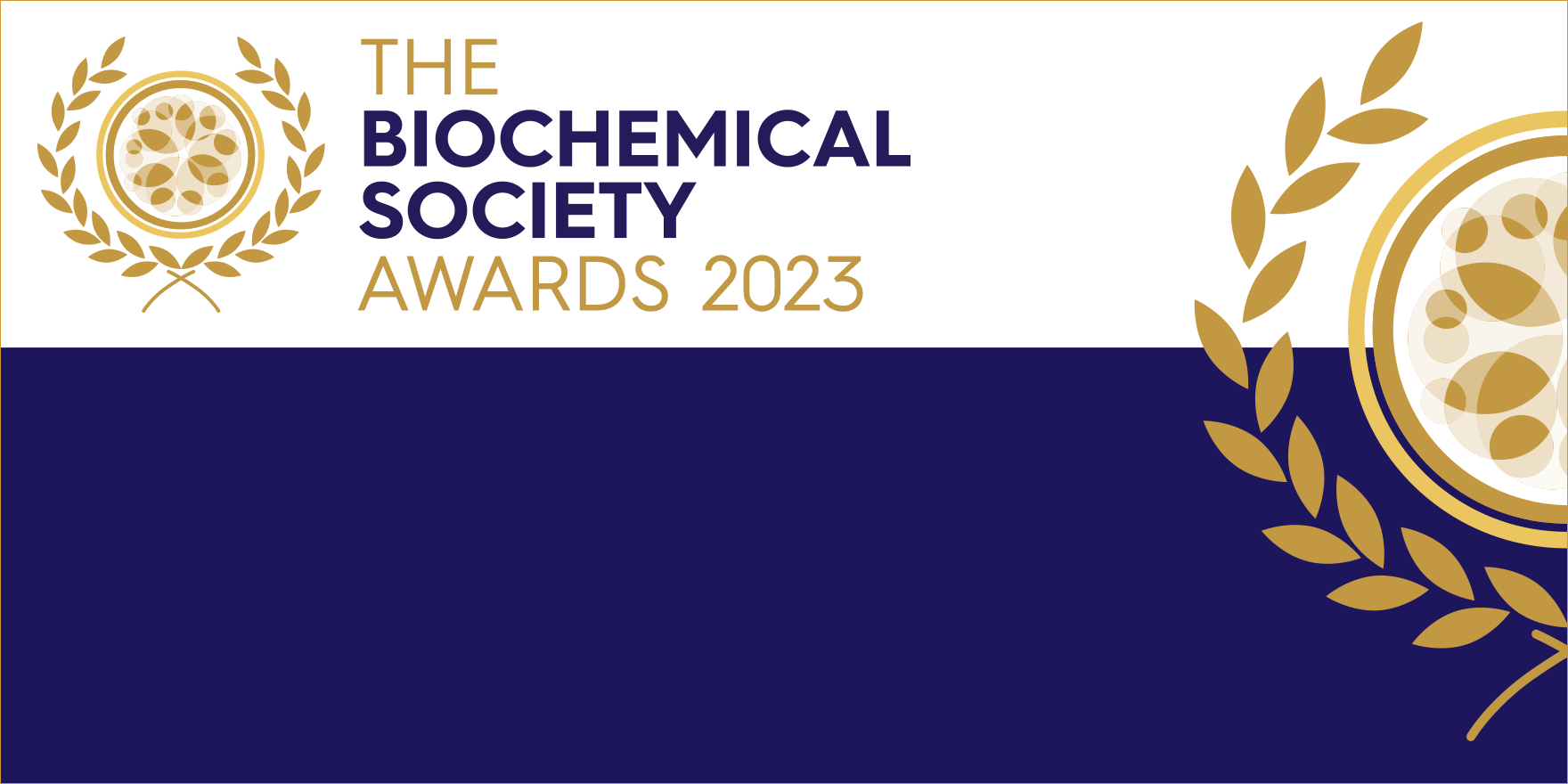
Biochemical Society Awards
Biochemical Society Awards are presented annually to individuals, teams, and organisations in two categories: ‘Significant Breakthrough or Achievement’ and ‘Sustained Excellence’.
This award was initially introduced in 2001 with the intention of widening recognition of excellence to span more diverse fields of endeavour within, or related to, the molecular biosciences. In 2022, the remit was widened to accept nominations in two categories: ‘Significant Breakthrough or Achievement’ and ‘Sustained Excellence’. Biochemical Society Awards are now presented annually to individuals, teams, and organisations.
Announcing our 2026 Award winners
Congratulations to Professor Cees Dekker (TU Delft) and Professor Christine Foyer (University of Birmingham)!
Find out more about our latest winners below
The recipient is given:
- A grant to attend a relevant event or training course
- A trophy or medal
- The opportunity to present a lecture at a Society event or webinar
- An invitation to submit an article to one of our journals, with any fees waived
Eligibility criteria:
- Awarded annually
- Open to all fields of endeavour within, or related to, the molecular biosciences
- Nominations are welcomed for two categories: ‘Significant Breakthrough or Achievement’ and ‘Sustained Excellence’
- Nominees must demonstrate commitment to build, support, and nurture future talent
- Nominees would typically be mid-career to senior
- Open to nominees based in the UK or internationally
- Open to individuals, teams, and organisations

Upcoming Award Lectures
Cees Dekker will present his Award Lecture at The Biology and Physics of Prokaryotic Chromosomes VII from 16-19 September 2025.
Christine Foyer will present her Award Lecture at Plant proteins: functions, regulation, production and utility from 21-23 October 2025.
Register now!The Awards Committee will consider the following aspects of all nominations for the Biochemical Society Awards as appropriate:
- Originality of research
- Impact and scope of research
- Quality of outputs – publications and/or patents and/or software
- Commitment to build, support, and nurture future talent, e.g., mentorship
- Other indicators of esteem demonstrated by the nominator
Contact us
For further information please get in touch with the Awards department.
Related content
5 itemsRecipients
Cees Dekker
Significant Breakthrough or Achievement
Cees Dekker
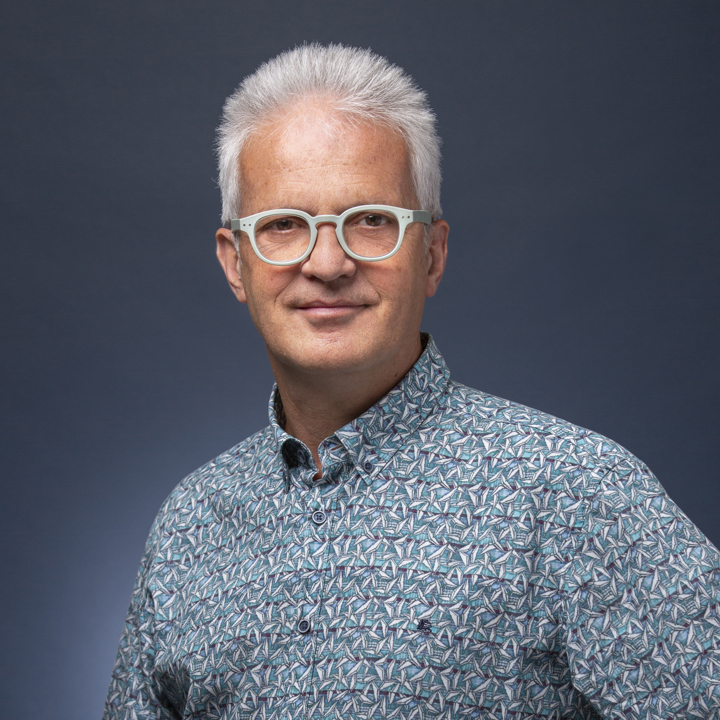
The Biochemical Society Award for Significant Breakthrough or Achievement will be presented to Professor Cees Dekker in 2026. Cees is a Distinguished University Professor at TU Delft. Trained as a physicist, he pioneered nanotechnology with many discoveries on carbon nanotubes in the 1990s. Since 2000, he moved to single-molecule biophysics and nanobiology.
Dekker is an elected member of the Royal Netherlands Academy of Arts and Sciences (KNAW) and fellow to the American Physical Society (APS) and the Institute of Physics (IOP). Dekker was Director of the prestigious Kavli Institute of Nanoscience Delft, initiated an entirely new Department of Bionanoscience at Delft, and leads large national research consortia. He received an honorary doctorate and many prizes such as the 2001 Agilent Europhysics Prize, 2003 Spinoza Prize, 2012 ISNSCE Nanoscience Prize, 2017 NANOSMAT Prize, 2021 Nano Research Award, and the 2024 Sackler Prize. Dekker was knighted as Knight in the Order of the Netherlands Lion, and he received ERC Advanced Grants in 2009, 2015 and 2020. Dekker published over 400 peer-reviewed papers that got cited >90.000 times (H-index 128).
His current research focuses on (i) nanopores for protein sequencing; (ii) chromosome structure, in particular SMC motor proteins; and (iii) building a living synthetic cell from lifeless molecules. On the latter subject, he initiated efforts to build a synthetic cell from the bottom up already 2 decades ago. He was one of the pioneers triggering the Dutch BaSyC consortium and the European Synthetic Cell Initiative, and currently leads the large (46M€) Dutch consortium EVOLF. His lab’s research on synthetic cells ranges from facilitating microfluidics lab-on-a-chip technology for generating liposomes, to biophysical studies of synthetic cell division, to synthetic genomes.
Cees said: “I am really greatly honoured by this 2026 Award from the Biochemical Society. It is wonderful that they acknowledge our contributions to nanobiology and single-molecule biophysics in this way, and it is a further motivation to continue this research in the forthcoming years.”
Christine Foyer
Sustained Excellence
Christine Foyer
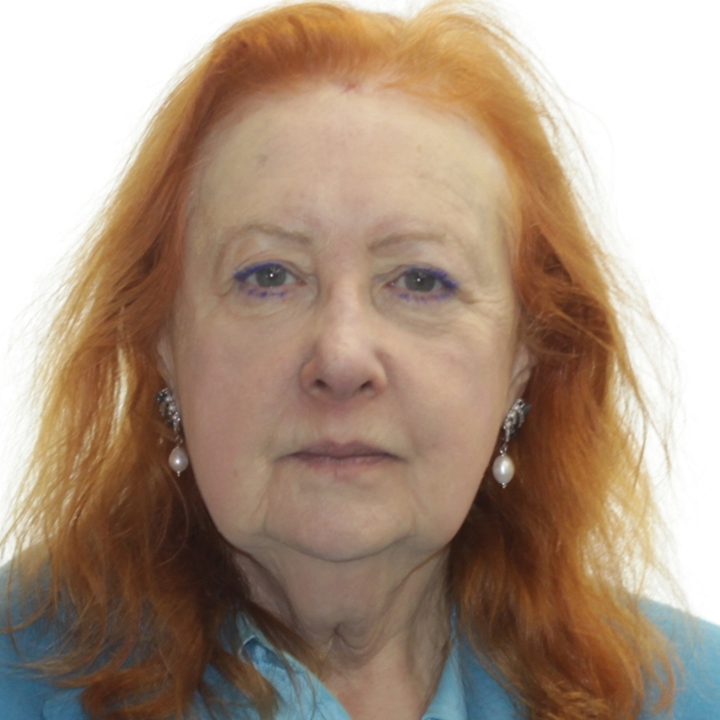
The Biochemical Society Award for Sustained Excellence will be presented to Professor Christine Foyer in 2026. Christine is a Professor of Plant Sciences at the University of Birmingham, a Member of the Environmental Sustainability Board of the FERRERO group and the Editor in Chief of Plant, Cell and Environment. She has over 480 published papers and ranked as a Highly Cited Researcher™ list from Clarivate™. She is listed in the 2023 Edition of the Ranking of Top 1000 Female Scientists in the World. Ranked 15 in United Kingdom, and 192 in the world. She is ranked 7th in the list of the world's Best Scientists in Plant Sciences. Christine is an expert in plant biochemistry and metabolism. With a strong focus on reduction/oxidation (redox) processes and signals that regulate plant growth and stress tolerance, her lab studies how primary processes such as photosynthesis regulate plant, growth development and defence, particularly through effects on the redox status of cells and cell signalling under optimal and stress conditions. Using model (Arabidopsis), crop plants and trees, her lab investigates the responses of photosynthesis and associated processes to abiotic stresses including elevated carbon dioxide.
Christine said: "I am honoured and delighted to receive this award, which means a great deal to me, not least because I undertook my PhD in the Department of Biochemistry in Kings College at the University of London. While the Department of Biochemistry evolved into a new structure long ago, I have remained a biochemist at heart and I encourage early stage researchers to continue to embrace this important topic, which remains a fundamental basis for understanding cell functions.”
Zhao-Qing Luo
Significant Breakthrough or Achievement
Zhao-Qing Luo
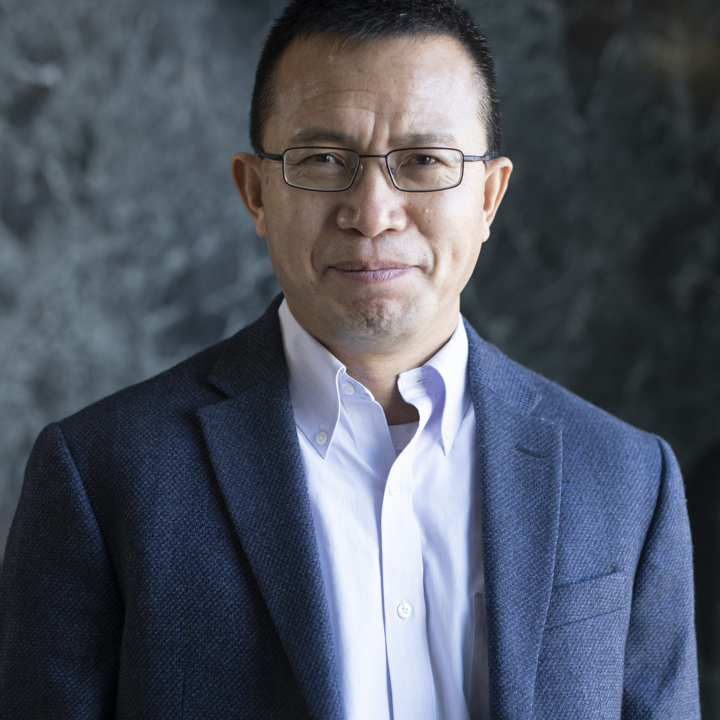
The Biochemical Society Award for Significant Breakthrough or Achievement will be presented to Dr Zhao-Qing Luo in 2025. Zhao-Qing is a professor at the Department of Biological Sciences, Purdue University. His research focuses on biochemical basis of bacterial infection using Legionella pneumophila as a model. One hallmark of L. pneumophila pathogenicity is its hundreds of virulence factors that function to modulate host processes to create an intracellular niche permissive for bacterial growth. His group has contributed significantly not only the identification but also functional characterization of many of these factors by revealing their unique biochemical activities and targets within host cells. He identified enzymes that catalyze reversible AMPylation and phosphorylcholination to regulate Rab1, a key signaling protein involved in vesicle trafficking. More notably, his group discovered a ubiquitination mechanism in which ubiquitin is activated by ADP-ribosylation using NAD as the energy source. These reactions are chemically distinct from the canonical three-enzyme cascade powered by ATP. He also found that these bacterial ubiquitin ligases are regulated by glutamylation catalyzed by pseudokinase-induced protein AMPylation. Work from the Luo group has revealed host function modulation by a wide variety of protein posttranslational modifications catalyzed by bacterial virulence factors, which have greatly expanded our understanding of cell signaling and the biochemical mechanisms underlying such modifications.
Zhao-Qing said: “I feel thrilled to be recognized by the prestigious Award from the Biochemical Society. It is a great honor for myself and for the many outstanding people with whom I have been fortunate to work with over the years. It reminds me of the many moments when we gained a glimpse of the activity of these cryptic proteins often after years of pursuit. I wish to thank my mentors at different stages of my career, my department, Purdue University, the funding agencies and my family for the support that enables my research."
Robert Cross
Sustained Excellence
Robert Cross
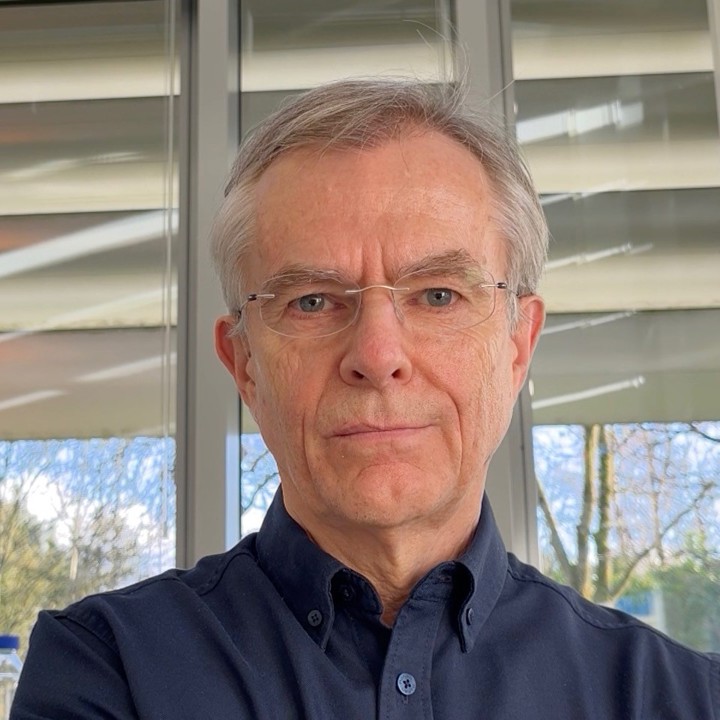
The Biochemical Society Award for Sustained Excellence will be presented to Professor Robert Cross in 2025. Rob is a molecular motors enthusiast. Motors are fundamental to eukaryotic life, because they allow cells to self-organise. How molecular motors work has fascinated him all his working life.
Rob obtained his PhD in 1983 from the University of Nottingham and then won an EMBO long-term fellowship to work with J. Victor Small and Apolinary Sobieszek in Salzburg on the structure and mechanisms of smooth muscle myosin filaments. In 1986, he moved to MRC-LMB as an MDA fellow and alongside John Kendrick Jones, Clive Bagshaw and Mike Geeves, Rob was ultimately able to propose an explicit mechanism for myosin II self-assembly.
In 1991, he moved to the Marie Curie Research Institute (MCRI) and began work on kinesin, then newly-discovered. In 2005, Rob and Nick Carter found that kinesin can step processively backwards under load. This turned out to be key to its mechanochemical coupling, which, as they recently (2020) showed, combines tight-coupled forwards steps with loose-coupled backslips.
In 2009, the MCRI closed and Rob moved, with his friends Andrew McAinsh and Anne Straube, to the University of Warwick. At Warwick, Rob continues to interrogate the kinesin mechanism, but with an important paradigm shift, whereby the interlock between the mechanochemical mechanisms of kinesin and tubulin is paramount.
Rob said: "The Biochemical Society is a national treasure and I am grateful for this recognition of my work. I like the idea of an award for sustained progress - for me, science is about finding a good problem, splitting it into smaller problems, and working to solve those, as best one can, for as long as it takes."
Paul Lehner
Significant Breakthrough or Achievement
Paul Lehner

The 2024 Biochemical Society Award - Significant Breakthrough or Achievement will be presented to Professor Paul Lehner. Paul’s work sits at the interface between immunology, virology and cell biology and he applies genetic and proteomic technologies to study viral interactions with the immune system. Prominent among these are his discoveries of novel pathways of viral evasion, his application of unbiased quantitative proteomics to understand how viruses remodel the infected cell, and his identification of epigenetic pathways for silencing DNA.
He discovered and characterised the Human Silencing Hub (HUSH), an epigenetic transcriptional repressor complex which silences DNA that has invaded the vertebrate genome. HUSH defends the host genome from first-line attack by silencing invading elements, including retroviruses and mobile endogenous retrotransposons e.g. LINE1 elements. He showed how HUSH has a remarkable ability to distinguish ‘self’ from ‘non-self’ DNA in the genome, a cellular compartment not thought to be visible to the immune system. This discrimination of ‘self’ from ‘non-self’ genomic DNA occurs through the recognition of ‘intronless’ cDNA, the hallmark of reverse transcription. The key function of HUSH is therefore to protect the genome from the reverse flow of genetic information i.e. RNA to DNA. Paul’s work has therefore revealed an unanticipated transcription-dependent mechanism of genome immune-surveillance, a novel function for cellular introns as well as a new arm of the innate immune system.
Paul presented his Award Lecture at Transcription and Chromatin UK between 25-27 September 2024.
On winning the Biochemical Society Award - Significant Breakthrough or Achievement for 2024, Paul said: "It is a great honour to be the recipient of this Biochemical Society Award. It recognises the achievements of so many talented people I’ve been fortunate enough to work with in the lab – who together have made this award possible. I am also grateful to my mentors as well as the Wellcome Trust, Medical Research Council and Lister Institute for their generous support of our work."
Joanna Wardlaw
Sustained Excellence
Joanna Wardlaw
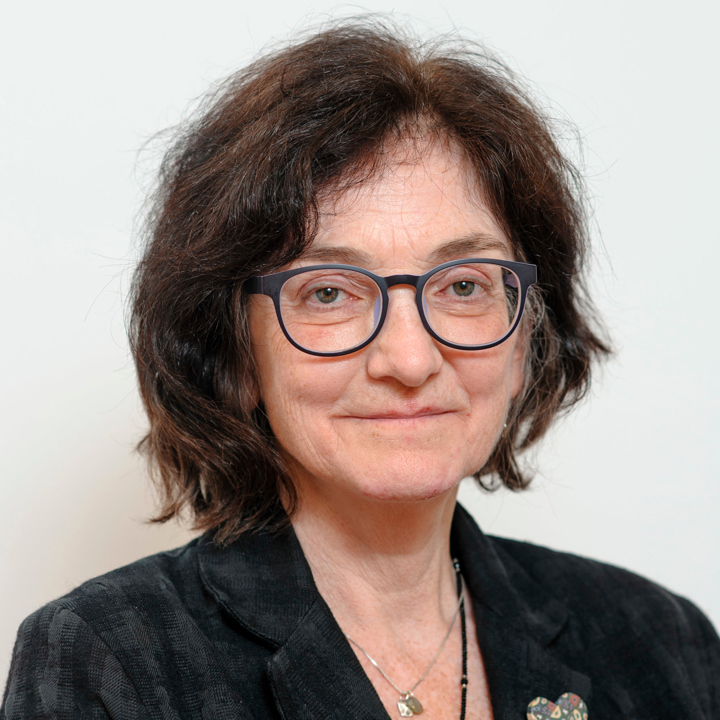
The 2024 Biochemical Society Award - Sustained Excellence will be presented to Professor Joanna Wardlaw. Joanna, CBE, MD, FRSE, FMedSci, is Professor of Applied Neuroimaging at the University of Edinburgh, Foundation Chair in the UK Dementia Research Institute, and Consultant Neuroradiologist for NHS Lothian. Her work focuses on understanding the brain and its blood supply, and on treatments to improve blood flow to the brain, including thrombolytic drugs that are now in routine use to treat stroke, and more recently on treatments for small vessel disease and dementia. Working with many colleagues, she has been instrumental in advancing understanding of the causes of cerebral small vessel disease and is now testing promising treatments in clinical trials. She has set up national research imaging facilities, co-ordinated international research networks, advanced stroke care worldwide and published over 1000 papers. A Fellow of the Royal Society of Edinburgh and of the UK’s Academy of Medical Sciences, she was awarded the American Heart Association’s Feinberg Award for Clinical Advances in Stroke in 2018, the European Stroke Organisation President’s Award (2017), the Karolinska Stroke Award (2018), the British Neuroscience Association Award for Outstanding Contribution to Neuroscience (2021), and was made a Commander of the Order of the British Empire (CBE) for services to Medicine and Neuroscience in 2016.
On winning the Biochemical Society Award - Sustained Excellence in 2024, Joanna said: "It is a huge honour to have been recognised by The Biochemical Society with the Sustained Excellence Award 2024. I feel deeply humbled, since my work is highly collaborative and depends on the contributions of many others, and grateful for the attention that this award will bring to our efforts to improve the lives of people affected by brain blood vessel diseases."
Janet Thornton
Janet Thornton
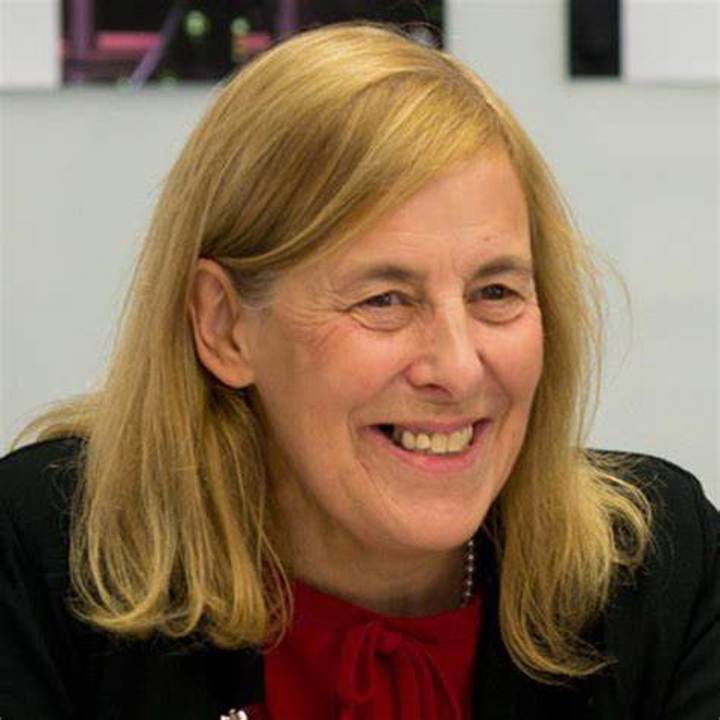
The 2021 Biochemical Society Award was presented to Professor Dame Janet Thornton at the European Bioinformatics Institute, Cambridge, UK. Janet is a Senior Research Scientist at the European Molecular Biology Laboratory – European Bioinformatics Institute on the Wellcome Trust Genome Campus at Cambridge, UK. She was Director of the Institute from 2001-2015 and is currently the ERC’s Vice President for Life Sciences. Janet’s research is focused on proteins, especially their structure, function and evolution. She is a computational biologist, working at the interface of biology with physics, chemistry, and computing. This includes a detailed analysis of enzyme biocatalysts, their mechanisms and the evolution of new catalytic functions; the impacts of genetic variation on protein structure and function and studies on the molecular basis of ageing.
Janet Thornton presented her award lecture ‘Computational enzymology, structure function and evolution of enzymes’ as part of the Biochemistry Focus webinar series. View the recording.
On winning the Biochemical Society Award, Janet said: “I am delighted to be chosen for this Biochemical Society Award for computational methods leading to advancing the understanding of biomolecular sciences. This is a real honour for me – and for all the people with whom I have worked. For me to see, to understand and to be inspired by the beauty of protein structures and their incredibly complex biology has been a real pleasure. To be recognised by the Biochemical Society adds much to that pleasure.”
Paul Bieniasz
for ‘demonstrating the use of biochemistry in helping combat infectious diseases’
Paul Bieniasz
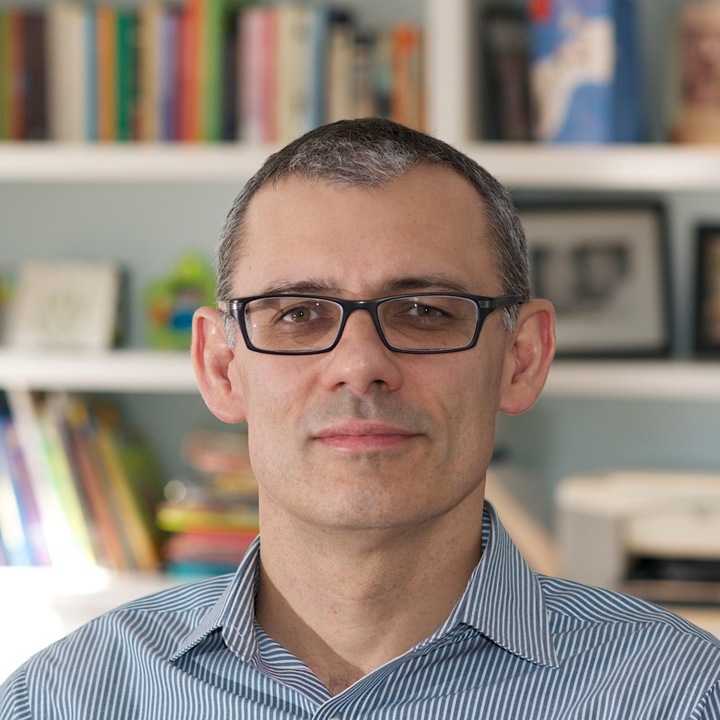
The 2019 Biochemical Society Award was presented to Paul Bieniasz from The Rockefeller University, USA. Paul has made major contributions to our understanding of HIV-1 replication. His group helped to elucidate how the ESCRT proteins are recruited by HIV-1 and other viruses to drive particle release, resolved controversies over the location in the cell where HIV-1 virion assembly occurs and illuminated how HIV-1 packages its RNA genome. With collaborators he developed techniques that allowed the first moving images of the genesis of individual virus particles in living cells to be captured. His group has also discovered several host antiviral mechanisms, including proteins that prevent the release of viral particles from cells, inhibit nuclear import of incoming HIV-1 DNA and enable recognition and elimination of non-self RNA molecules based on their nucleotide composition. His group used knowledge of host variation in antiviral proteins to break host range barriers and develop a macaque model of HIV-1 infection. He has also pioneered the field of ‘paleovirology’, showing that extinct retroviruses and their proteins can be resurrected in functional form from molecular fossils that are present in modern genomes.
Of winning the Biochemical Society Award, Paul said “I am surprised and delighted to be receiving the Biochemical Society Award. This honor recognizes the efforts and achievements of colleagues, past and present, as much as it does my own work. I am especially grateful to my wife and scientific partner, Theodora Hatziioannou, who has made me a better man and a better scientist”.
Keith Gull
for ”‘Biochemistry plus.’’ An outstanding individual who has not only achieved as stellar research scientist, but who has also undertaken activities that have had substantial impact in bioscience related areas outside the laboratory’
Keith Gull
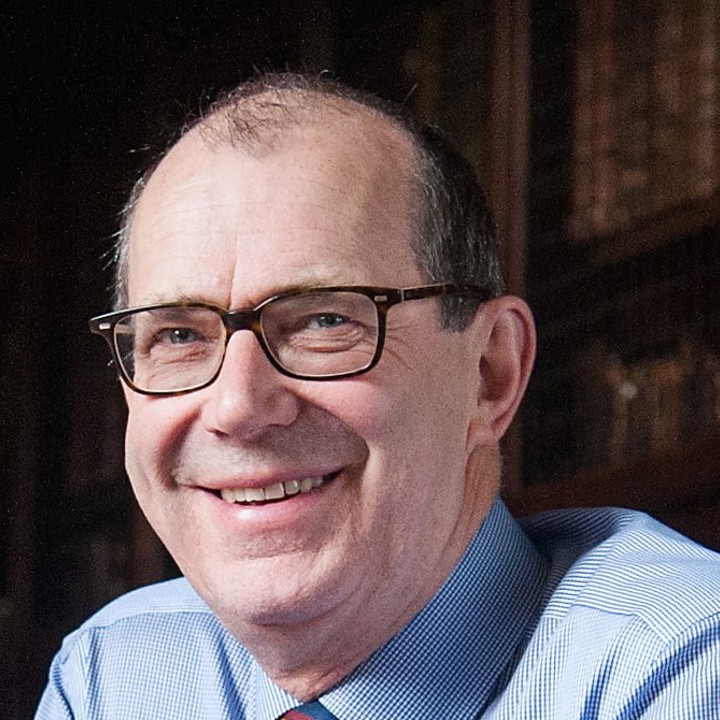
The 2017 Biochemical Society Award was awarded to Keith Gull from the Sir William Dunn School of Pathology, University of Oxford. Keith has a special interest in the biochemistry of the microtubule cytoskeleton, cell motility and division. He has made a major contribution to understanding the molecular components of the microtubule cytoskeleton and how it operates in flagellar motility, cell division, and morphogenesis of the African trypanosome. His work has led to the establishment of novel insights into the evolution of the cytoskeleton and its components. He has served on numerous government, learned society and medical charity committees as well as the governing bodies and science advisory committees of many institutes in the UK and Europe. He has had a long-term interest in graduate education and the careers of young scientists. Professor Gull has organised many courses for young African scientists in sub-Saharan Africa.
Nick Lane
for ‘a sustained and diverse contribution to the molecular life sciences, with a special emphasis on education and/or the public understanding of science’
Nick Lane

Tom Blundell
for ‘an outstanding contribution to the development and management of UK molecular bioscience’
Tom Blundell
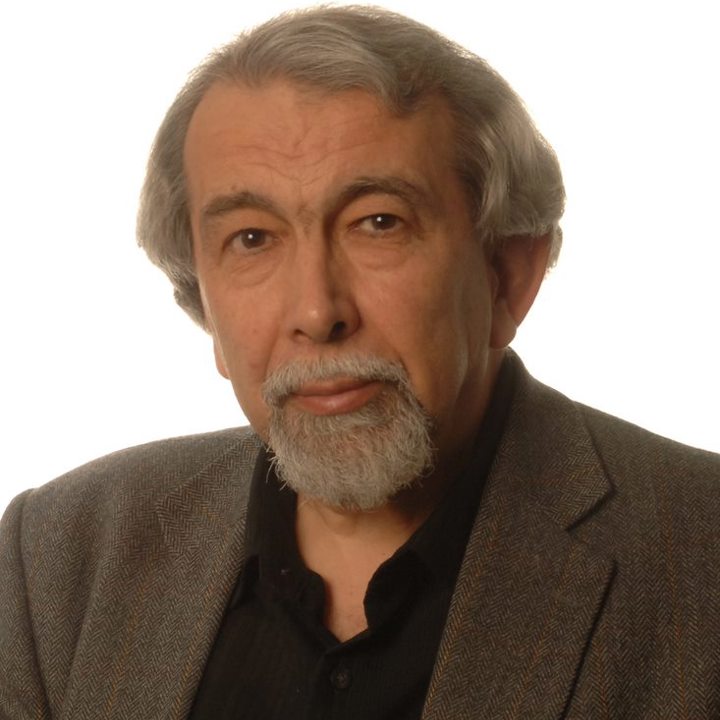
Discover Sir Tom Blundell's article published in Biochemical Society Transactions:
Michael Berridge
as ‘a candidate whose research has had a transformative effect on biochemical research’
Michael Berridge

Discover Sir Michael Berridge's article published in Biochemical Society Transactions:
Calcium signalling remodelling and disease
Gurdyal Besra
for ‘work carried out by a UK scientist that has advanced health in the developing world’
Gurdyal Besra

Martin Raff and Gregory Winter
for ‘scientists who have successfully challenged dogma, created a new field of thinking, elucidated a paradigm or made a fundamental change to established thinking’
Martin Raff and Gregory Winter

David Lane
for ‘basic biochemical research and its exploitation for the benefit of society’
David Lane

Steven P.R. Rose and Bernard Dixon
for ‘scientific communication in the public domain’
Steven P.R. Rose and Bernard Dixon

